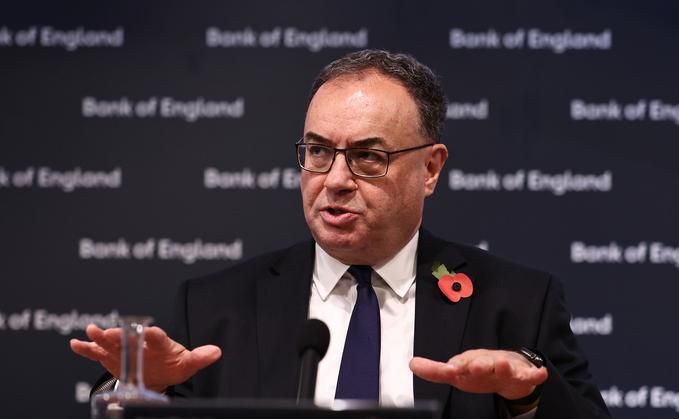The pound fell to a three-week low after Bank of England Governor Andrew Bailey indicated that interest rates could be cut more sharply if the UK labour market deteriorates further.
Bailey told The Times that the UK economy was showing signs of increasing “slack,” partly due to higher taxes placing pressure on employers. He reaffirmed his belief that interest rates are on a downward trajectory, stating, “I really do believe the path is downward.” Currently, the bank rate stands at 4.25% following four 0.25-point reductions over the past year. The next rate decision is scheduled for 7 August.
Bailey emphasized that a faster-than-expected slowdown in the labour market could prompt more aggressive cuts, saying: “If we saw the slack opening up much more quickly, that would lead us to a different conclusion.” He reiterated the Bank’s “gradual and careful” approach amid concerns over persistent inflation, which, while easing to 3.4% in May from 3.5% in April, remains above the 2% target.
Following his remarks, the pound dipped 0.2% to $1.3467 on Monday morning—its lowest level since 23 June—before recovering slightly to $1.3474 by the afternoon. Market expectations for a rate cut in August also increased, with the probability rising to 85%, up from 76% the previous week.
Bailey also referenced Chancellor Rachel Reeves’s recent tax hikes on employers, noting that businesses were responding by reducing working hours, slowing pay growth, and adjusting employment levels. The tax changes included a £25 billion increase in employer national insurance contributions and a 6.7% rise in the national living wage introduced in April.
Amid mounting pressure to raise living standards, Bailey’s comments about potential rate cuts and moderating inflation arrive at a time of economic fragility. Recent data showed a surprise 0.1% contraction in the UK economy in May, following a 0.3% drop in April, driven by steep declines in manufacturing and construction.
Reeves’s fiscal strategy has been constrained by high borrowing costs and weaker growth forecasts. Her October budget included tax hikes totaling £40 billion, but limited fiscal flexibility has since forced difficult decisions. A planned £5 billion cut to disability benefits was largely reversed after internal Labour opposition, and further tax increases are expected in the autumn budget to fill the gap left by these U-turns and declining revenues.
Adding to concerns, consultancy firm KPMG and the Recruitment and Employment Confederation reported the sharpest drop in UK business hiring in nearly two years. Their latest index showed staff availability rising to 66.1 in June from 63.3 in May—the highest level since November 2020—indicating a cooling labour market.








.svg)


.jpg)